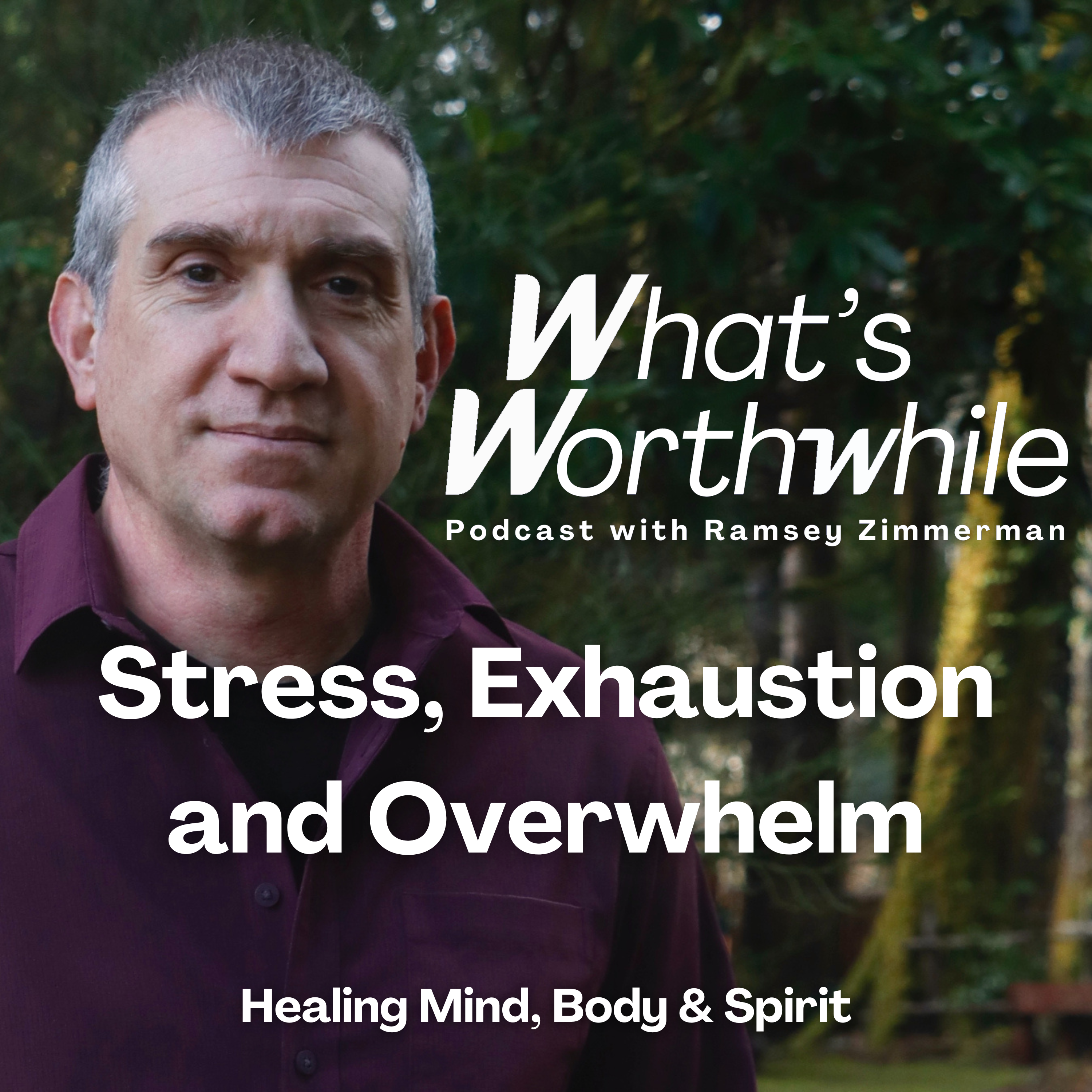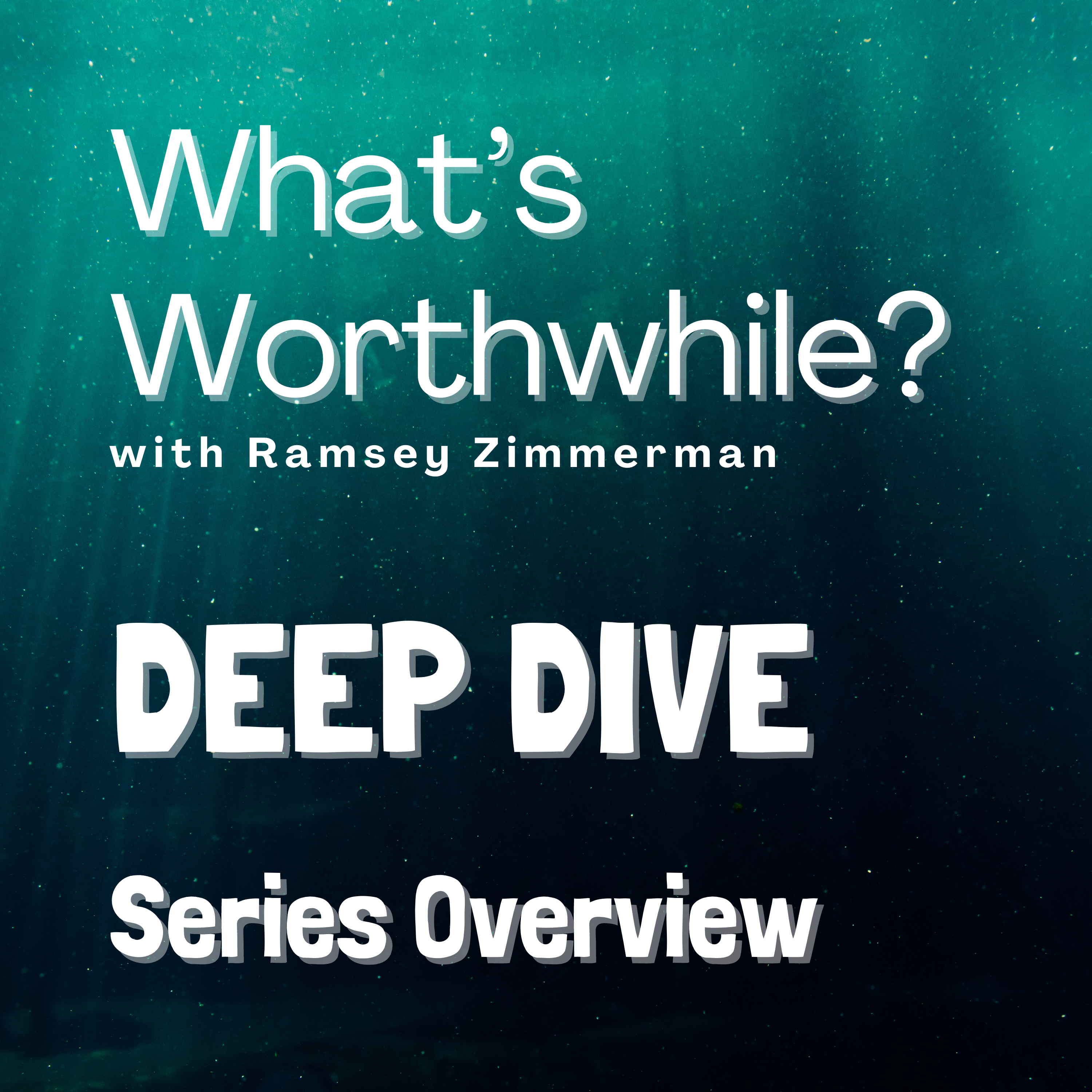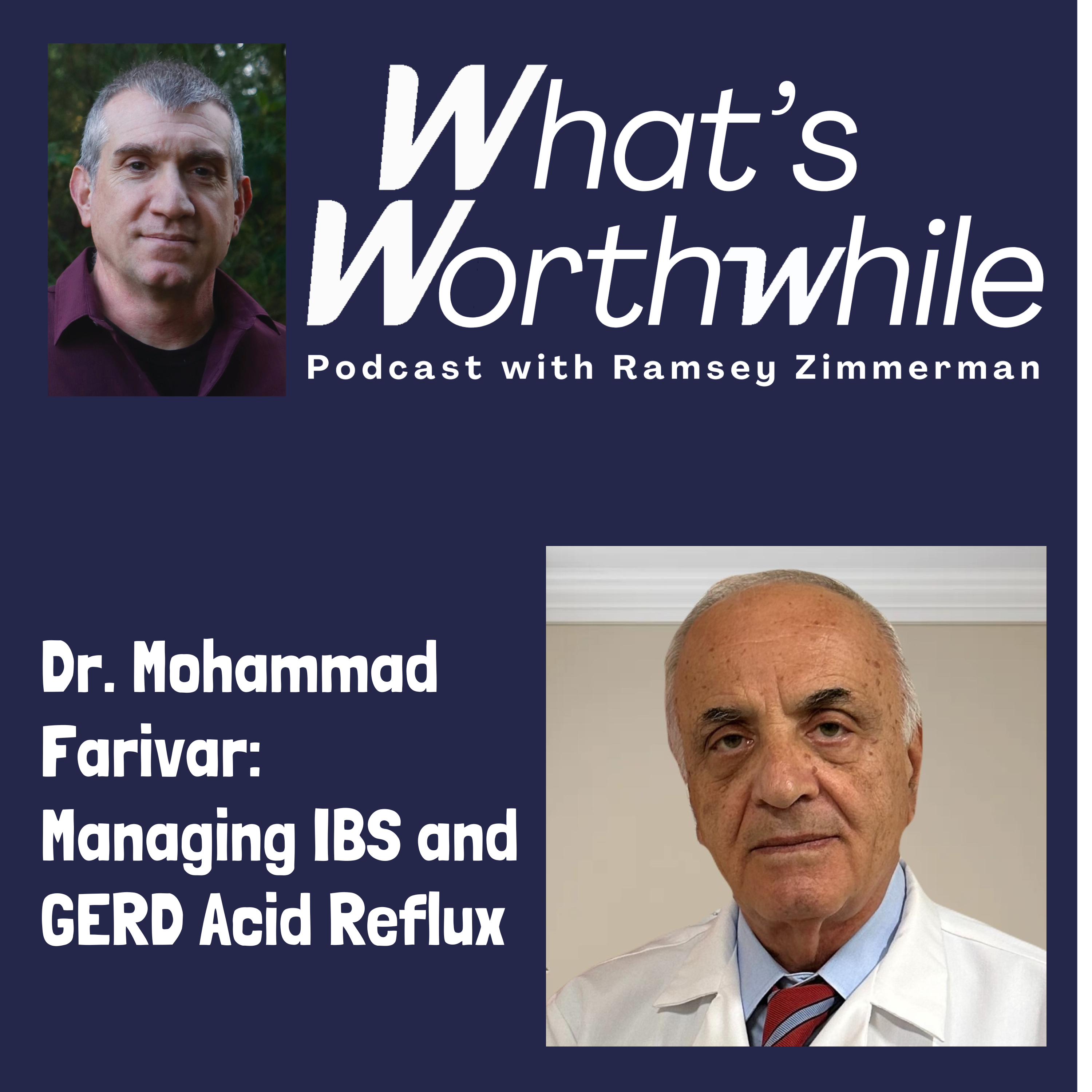Episode Transcript
[00:00:00] Hey, brothers and sisters, mothers and fathers, daughters and sons, friends, old and new, it's Ramsay here. I've always been a heavy packer. Even when heading out for just a weekend, I take a bunch of extra clothes. Will it rain or be hot and sunny? Colors will I want to wear?
[00:00:17] Who am I kidding? Every thread I own is shades of blue and gray and green. Ah, well. Point is, I usually bring along way more stuff than I actually need. So here I am contemplating this journey that I'm heading off on and that I hope you're excited about joining. And I'm thinking about what's a pack? When we're asking what's worthwhile? When we're looking at some big picture topics and zooming in on some specific details, what should we bring with us and what should we leave at home? There's a really great book by author Cheryl Stray called Wild from lost to found on the Pacific coast trail. The author was having a really rough time in her life, so she decided one day to hike more than a thousand miles from California to Washington state on the Pacific coast trail. She hadn't done any kind of a long distance hike like that before, and she didn't know what to bring, so she brought a lot of stuff. She named her backpack monster because it was so big and heavy. The opposite extreme would be Jesus disciples when he sent them out in pairs on their first great mission and adventure. See Luke, chapter nine. Jesus told them, take nothing for your journey. No staff, nor bag, nor bread, nor money. Not even two tunics. I always want to bring an extra tunic. I would have been like, what if I get ketchup on my first tunic? Am I supposed to walk around with ketchup on my tunic for the whole journey? Sheesh. Without giving too many spoilers from Cheryl Strayed's book, at one point, she met a guy on the trail who had a lot more hiking experience than she did, and he helped her go through her pack and dump the stuff that she didn't really need and keep the things that would be essential. Jesus disciples met lots of people along their journeys who gave them food and shelter and presumably provided soap to wash the ketchup stains out of their tunics. Here in the Pacific Northwest, we have a hiking club called the mountaineers who are kind of famous for their ten essentials. They're pretty obvious once you think about it, but here are the ten essentials for mountaineering. Navigation, headlamp, sun protection, first aid, knife, fire shelter, extra food, extra water, and extra clothes. I knew I should bring an extra tunic. All right, enough preamble. What are our essentials for this journey? I'm going to say we need to bring a mind open to new ideas, but also a healthy skepticism for when we encounter them. We should bring our compassion for people who feel harmed, even if we don't understand at first what their deal is. We should even try to bring unconditional love, a proclivity to wish the best for people that we encounter, even if they seem very different from us at our first meeting. Likewise, here are a few things I think we should leave behind, preconceived notions about exactly how the world works, especially those that we're not really sure why we even have them. Because that's the way we always did it. Because everyone says so. No, I think we should also try to leave behind fear and worry. Fear about what other people will think of us if we make some decisions about what's worthwhile that they don't agree with, worry that if our priorities or values change or evolve or develop, that people won't understand and accept us anymore. I also think we should leave behind haste. Let's not jump to conclusions. Let's give new people and new ideas some time to bounce around in our heads, and let's look for additional evidence before we make any firm decisions. Since we're packing for the journey, it makes sense to think about where we're going. Is it a city or the forest? Is it a warm climate or a cold one? As I ask myself what's worthwhile, there are a handful of topics I am particularly interested in. That's where I'm planning to go. My professional experience is with energy, energy production, energy usage, and energy efficiency. Big question there is how do we make enough energy to use today without messing up the natural world for the future? My spiritual belief is in God, in the Father, the Son, and the Holy Spirit. I'm asking, assuming there is a God, how can we best connect with him, talk to him, and hear him speaking back with us? In terms of my physical health and fitness, I take a bunch of vitamins and supplements, no pharmaceuticals, and I run about 15 miles a week. I have to ask, is the focus on pharma, drugs and new vaccines for so many things a net benefit or a net harm to people's health? With politics, I still shake my head about what happened in the 2020 presidential election. Now that we're in 2024, how could we have an election where everyone can trust the outcome, then have a smooth and peaceful transition? And finally, in terms of society and how tense and divided, it feels like people are. How can we build bridges so that we can live together with love and understanding even more than just tolerance. I know that's a lot of stuff. I told you I overpack. I probably have already packed my own monster for this journey. All of this talk about preparation is maybe also just me procrastinating. I should grab my walking stick, my essentials and head out. Are you ready? Shall we go? I'm sure I'm going to bring too much stuff to carry, so I'll try to set things down and pick new things up. I'm going to try to learn from the people that I meet along the way. I don't know exactly how this is going to go, but I have a general idea and for today that is enough. Thank you for asking. What's worthwhile? Visit what'sworthwhile. Net to learn more about me, ramsey zimmerman, and please provide your name and email to become a supporter. I'm asking for prayer, advice, feedback and connections. The what's worthwhile podcast is on Spotify, Apple, iheart, and Amazon. You can also listen at what worthwhile.net. Thanks.


